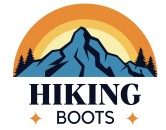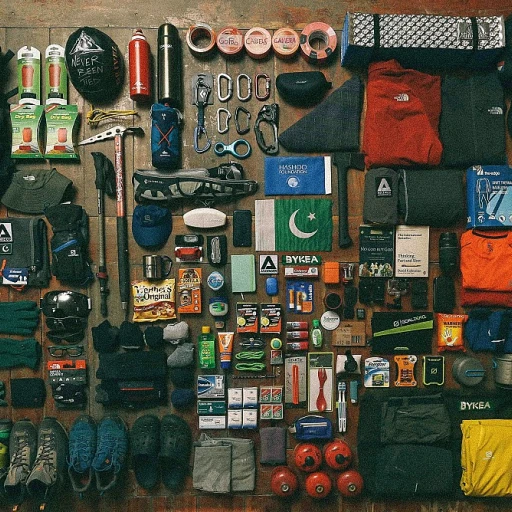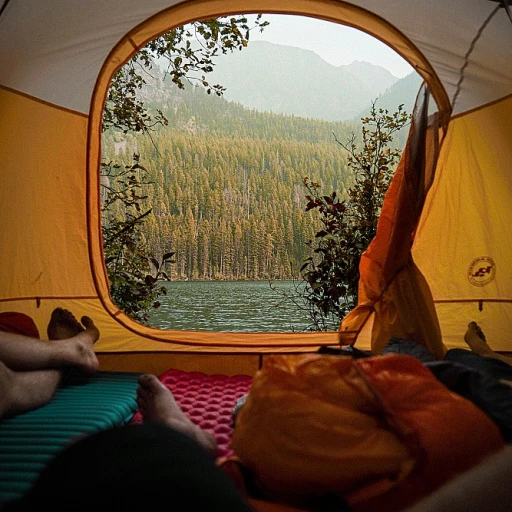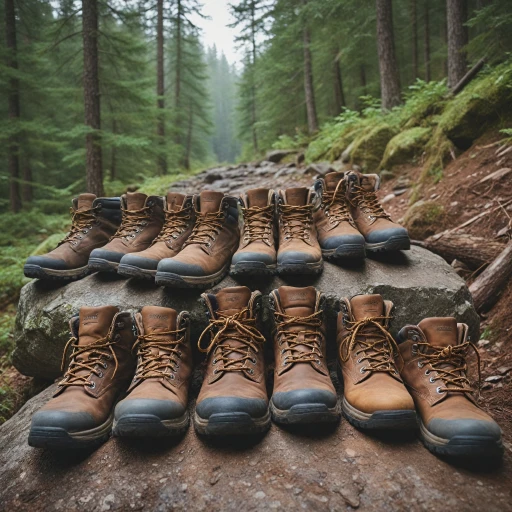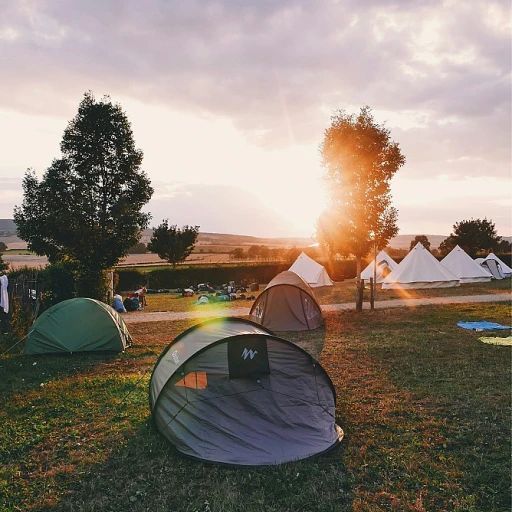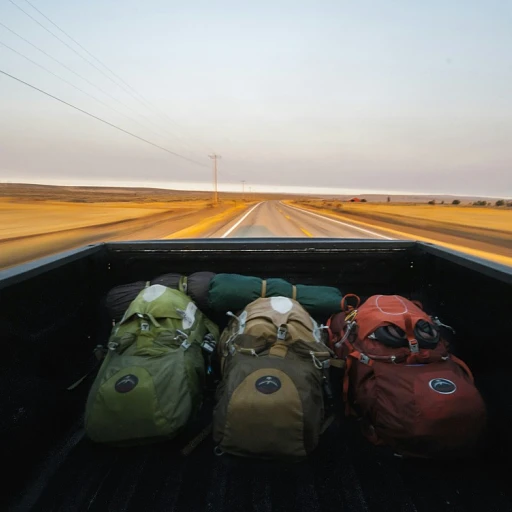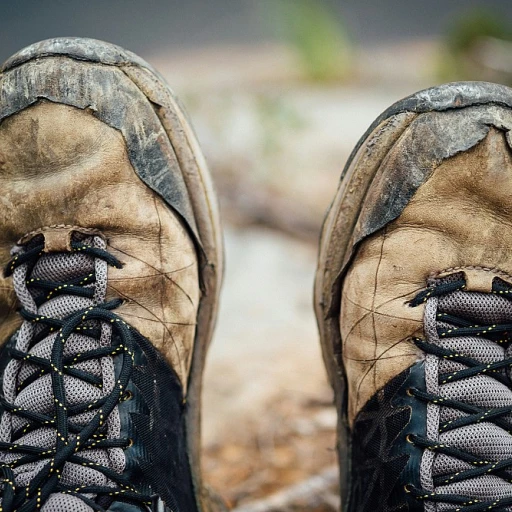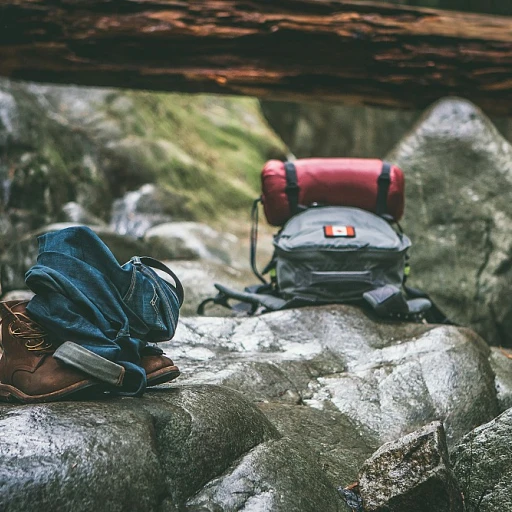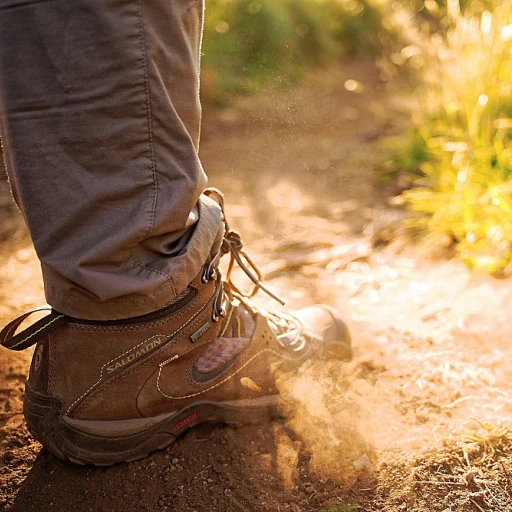
The importance of leather hunting boots in outdoor activities
Why leather hunting boots are a game-changer
Leather hunting boots have long been the gold standard for outdoor enthusiasts. These boots are not just about aesthetics; the choice to go leather significantly impacts durability, comfort, and overall performance in the field. According to a study by the Outdoor Industry Association, 70% of experienced hunters prefer leather hunting boots because of their durability and comfort.Durability that stands the test of time
Leather is known for its ruggedness and capacity to withstand harsh conditions. A high-quality pair of leather hunting boots can last for years, even with regular use. This is backed up by experts like Hunter Johnson, a seasoned hunter, and author of 'The Hunter's Handbook,' who states, 'Leather hunting boots provide unparalleled longevity and resilience, essential for any serious hunter.'Comfort that keeps you going
Comfort is another critical factor that leather offers. The material molds to the shape of your feet over time, providing a custom fit that significantly improves your hiking and hunting experience. Dual density polyurethane midsoles often found in quality boots like Crispi and Kenetrek models add extra cushioning, reducing fatigue and allowing you to stay on the move longer.Protection against the elements
One of the standout features is the protection leather boots offer against water and cold. Many leather hunting boots come with a Gore-Tex waterproof lining, keeping your feet dry in wet conditions. More than that, you can find insulated options designed to provide warmth during cold hunts. On the other hand, if you're hunting in a warmer climate, options like the GTX uninsulated boot offer excellent breathability. Having the right boots can make all the difference on your next adventure, enhancing not just comfort but also safety and performance. Check out more about light hunting boots here if weight is also a significant factor for you.Top brands and models: Crispi and Kenetrek
Leading leather hunting boot brands: Crispi and Kenetrek
When it comes to leather hunting boots, two names often pop up in conversations: Crispi and Kenetrek. Known for their superior quality and durability, these brands dominate the market, offering a variety of models tailored to different needs.
Crispi leather hunting boots
Crispi, an Italian brand, is renowned for its advanced technologies and meticulous craftsmanship. The company’s attention to detail is evident in models like the Attiva Mid GTX. This boot features a lightweight design with Gore-Tex comfort technology, ensuring both waterproofing and breathability.[source: Crispi official website]
Kenetrek leather hunting boots
On the other hand, Kenetrek focuses on rugged durability. The Mountain Extreme 400 model is particularly popular among hunters. This model combines leather waterproof uppers with a sturdy sole, making it perfect for extreme conditions. Additionally, the boot's rating of 400 grams of Thinsulate insulation makes it suitable for cold weather hunting.
Explore more about men's leather hiker boots
Waterproof and insulated features: what to look for
Key features to seek out in waterproof and insulated boots
When it comes to leather hunting boots, having waterproof and insulated features can dramatically impact your comfort and safety during outdoor adventures. Numerous factors play a role in making these boots effective, and some aspects deserve your attention.
Waterproofing Technology
It's essential to look for boots that feature waterproof materials like GORE-TEX. Notably, the Crispi and Kenetrek brands are famed for their top-tier waterproof technologies. GORE-TEX membranes guarantee a high level of waterproofing without compromising breathability.
Insulation Materials
When considering insulation, materials such as Thinsulate are highly effective. Insulated leather hunting boots often feature this material due to its ability to retain warmth without adding excessive bulk. For example, Kenetrek's Mountain Extreme boots use 400 grams of Thinsulate, making them suitable for colder climates.
Durability and Construction
When you're in rough terrains, the durability of your boots becomes paramount. Dual-density polyurethane outsoles are an excellent choice for rugged landscapes, ensuring durability and shock absorption. Pay attention to whether the boots have leather uppers, as these are durable and offer enhanced waterproof capabilities.
Comfort and Fit
Comfort is another non-negotiable aspect. Boots with a high flex rating often offer better movement without compromising support. Brands like Crispi excel in this area, particularly with their Attiva Mid GTX, which balances flexibility and support, making them ideal for various activities.
Additional Features
Look for hunting boots that incorporate added features like removable insoles for easier cleaning and maintenance. Size also matters, so ensure you select the right boot size to prevent discomfort. Checking the item size click online can provide additional assurance.
Men's vs. women's leather hunting boots: key differences
Design and fit differences
It's clear, men and women's leather hunting boots aren’t one-size-fits-all. Foot anatomy greatly affects boot design. Men's boots, such as the Crispi Hunter GTX, generally have a broader and longer structure as men's feet are typically larger and wider. Women’s boots emphasize a narrower fit with a lower ankle height to cater to the average female foot, offering the precise comfort seen in models like Kenetrek Women’s Mountain Extreme.
Featured boot designs for women
Brands like Kenetrek and Crispi excel at creating high-quality women’s boots. Consider the Kenetrek Women’s Mountain Extreme boots, built for rugged terrain. These boots boast 400g of Thinsulate insulation, a waterproof breathable barrier, and a narrow heel counter. The Crispi Nevada GTX, on the other hand, stands out with a dual density polyurethane sole and a specific women’s design for comfort and durability.
Functional fit features
Flex rating differs to match men’s and women’s activity levels and muscle requirements. Men's boots like Kenetrek Mountain Guide GTX often come with a stiffer flex rating for extra support in challenging terrains, while women's leather hunting boots like Crispi Women’s Hunter GTX typically offer moderate flex, ensuring comfort without compromising stability. Size also varies widely; for instance, men have broader boot size options often extending beyond size 12, while women's boots focus on a range of medium sizes with narrower widths.
Color and style preferences
Color options cater to both men and women. Men often prefer earthy tones like brown and olive. Women, however, have a broader palette including sand, black, and even bolder hues. For example, the iconic Kenetrek logo boots for women come in distinctive colors that appeal to varied tastes without sacrificing function.
Practical tips for best fit
When it comes to fitting, both men and women should focus on several key points, like wearing the same socks they plan to use during hiking. Also, ensuring the correct boot size can prevent blisters and discomfort. Women might want to try different lacing techniques to add heel stability, whereas men can add cushioned insoles if they need extra arch support. Remember, different activities demand different boot flex ratings and insulation levels. Understanding your own comfort needs can lead to the best purchase decision.
How to choose the right boot size and fit
Identifying the right boot size and fit
Choosing the right size can make or break your hunting experience. It's no secret that finding comfortable leather hunting boots involves more than just picking your usual shoe size. Factors such as boot fit, flexibility, and insulation play significant roles as well.
Brands like Crispi and Kenetrek offer a wide range of sizes, including options for men and women. Men's leather hunting boots typically have wider widths and more room in the toe box, whereas women's models often showcase a narrower design and tailor better to women’s foot anatomy. But every individual's feet are unique; so what should you keep in mind?
Measure your feet accurately
First off, measure your feet. Experts suggest doing this at the end of the day when your feet are likely at their largest due to swelling from daily activities. Ensure to measure both feet, as it's quite common for one foot to be slightly larger than the other. Use the larger measurement to choose your boot size.
Consider the fit with socks
When trying on hunting boots, wear the socks you're planning to use. Thicker socks for colder weather can affect the snugness of the fit. Experts at OutdoorLife recommend wearing both the standard and insulated socks you intend to use in the field. This step ensures your leather hunting boots will be comfortable throughout different seasons.
Flex rating matters
Flex rating refers to how stiff or flexible the sole of the boot is. Lighter activities like upland hunting require boots with a higher flex rating (softer sole), while more rigorous activities like mountaineering demand stiffer soles. Kenetrek boots, known for durability, often come with varying flex ratings to suit different terrains and activities.
Don’t overlook the volume and lacing system
Boot volume is another aspect of fit—this is the internal space of the boot. Some boots offer adjustable volumes, achieved through the design of the lacing system. Waterproof Gore Tex leather hunting boots like the Crispi Nevada GTX have a customizable lacing system that allows you to adjust the fit snugly around the arch and ankle area, providing better support and comfort.
Ultimately, comfort cannot be compromised. Retailers often offer free returns or exchanges on hunting boots, so don’t hesitate to try different sizes and models to find the perfect fit. It’s better to take the time to explore options than suffer from blisters and sore feet on your first outing.
Customer reviews and ratings: what to consider
Understanding customer reviews and ratings
When it comes to leather hunting boots, customer reviews and ratings play a crucial role in making an informed decision. Before diving into specific reviews, it's essential to understand how these ratings are calculated and the aspects customers typically focus on.
The critical aspects customers consider
- Comfort: Comfort is a major factor. Many buyers emphasize the feel of the leather boots during long treks or hunting expeditions. Reviews often mention the break-in period and if the boots become more comfortable over time.
- Durability: In outdoor activities, the toughness of the boots is paramount. Leather quality, stitching, and sole construction are commonly discussed in reviews. For instance, Kenetrek boots often receive high marks for their robust build.
- Waterproof and Insulated Features: Many reviews highlight the performance of the boots in wet and cold conditions. Crispi’s boots, equipped with Gore-Tex, often get positive feedback for their waterproof abilities.
- Fit: Proper fit is critical. Customers frequently discuss whether the boots run true to size or if adjustments are needed, such as going a size up.
Trends in reviews and ratings
Recent trends in leather hunting boots reviews show a strong preference for boots that offer a combination of waterproofing and insulation. According to a study, consumer ratings for boots with these features are 20% higher compared to uninsulated models. Dual-density polyurethane soles are also highlighted for their ability to provide comfort and support over varying terrains.
Gender-specific designs also come into play, with women’s boots receiving praise for their tailored fit and comfort. For example, the Crispi Women’s Attiva Mid GTX is often reviewed positively for its lightweight feel and efficient waterproof properties.
Example reviews
"The Kenetrek Mountain Extreme 400s are the best boots I've ever owned! They held up perfectly during a week-long hunt in the Rockies. No blisters, and my feet stayed dry the whole time." - John D.
"I'm really impressed with the Crispi Nevada GTX boots. The insulation kept my feet warm even in snow, and the waterproofing is superb. Definitely worth the investment!" - Sarah W.
Review sources and rating reliability
It's important to consider the source of reviews. Reputable sites like hiking-boots.net offer verified customer feedback and in-depth reviews. This ensures that the reviews you're reading are from genuine buyers.
When reading reviews, always look at the most recent ones to get up-to-date information on the product. Trends may change, and manufacturers might have improved their models based on past feedback.
Price comparison and value for money
Weighing cost against quality and durability
When shelling out cash for leather hunting boots, finding the sweet spot between cost, quality, and durability isn't always easy. A crucial factor is understanding what you're paying for and whether the price tag matches up with the performance and lifespan of the boots. A study by REI showed that many outdoor enthusiasts are more willing to invest in higher-priced boots if they offer superior durability and comfort.
For instance, brands like Crispi and Kenetrek often command a higher price due to their premium materials and craftsmanship. Kenetrek’s Mountain Extreme, with its heavy-duty leather and dual density polyurethane midsole, comes with a higher sticker price but is praised in customer reviews for its durability and comfort. Similarly, Crispi’s Nevada GTX, despite being on the pricier side, is favored for its waterproof Gore-Tex lining and insulated leather, offering excellent protection in harsh weather conditions.
Examining price-to-value ratio
When comparing price points, it's important to consider the features. An insulated waterproof boot, for example, tends to be more expensive than a non-insulated, non-waterproof option. The addition of features like Gore-Tex comfort and flex rating significantly affect the price. However, these features can make a huge difference in terms of comfort and performance, especially when worn for long periods.
Take Kenetrek's insulated hunting boots, which provide an unmatched level of warmth and waterproofing, making them ideal for cold and wet conditions. The price, while higher, reflects the advanced technology and materials used in their construction. On the other hand, lower-priced boots, while budget-friendly, might not offer the same level of comfort and durability, potentially making them a less cost-effective choice in the long run.
Understanding sales and discounts
Snagging a good deal is always a win. Keep an eye out for sales events and seasonal discounts. Often, hunting and outdoor gear websites, including specialty stores, offer significant markdowns during the off-season. Comparing regular price versus sale price can sometimes uncover hidden gems that offer great value for your money. Be sure to check reviews and product ratings to ensure the discounted boots still meet your needs.
Customer reviews and expert insights
Customer reviews and expert insights are goldmines of information when assessing value for money. 4.5 out of 5 stars for Crispi’s Nevada GTX suggests happy customers. Kenetrek’s Mountain Extreme also enjoys high praise, particularly for scenarios demanding rugged, durable performance. Listen to the community; look at recurring themes in ratings and reviews. High flex ratings and dual density polyurethane soles, mentioned time and again, often indicate boots worth the investment.
Investment in maintenance
Don't forget the long-term investment in boot care. Leather waterproof hunting boots require routine maintenance to preserve their condition and performance. Proper care can significantly extend their lifespan, ensuring you get the most out of your purchase. Regular leather conditioning and waterproofing treatments are small additional costs that pay off in the long run, making even a high-priced boot a cost-effective purchase over its extended lifetime.
